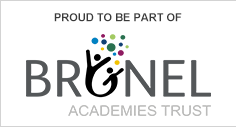Reading
Reading confidently and with good understanding is a skill that our learners need for life.
Useful Links
Reading at Home
Please see some hints and tips for reading with your child. Please don’t try to do all of these every time you listen to your child read. The following is a selection of questions and activities that are to help you in guiding your child’s reading and understanding. The questions are examples only and should not be asked, in sequence, every time your child reads. Questions should be appropriate to the text.
Before you start
- Check that there are no distractions, for example turn the television off.
- Make sure that your child is comfortable and that you can interact with your child.
- Discuss the cover and appearance of the book:
- What is the book’s title?
- What is the story about?
- Do you like this book?
- If the child has already started the book, ask about the main events of the story so far.
During Reading
- Remind your child of the different ways they can work out words on which they are stuck:
- Phonetic: sounding out each phoneme.
- Contextual: reading the rest of the sentence in order to find a word that gives the sentence sense.
- Pictorial: clues can sometimes be found in the pictures.
- Interact with your child rather than simply hear them read. They will be more responsive to your questioning if they know that you are interested.
- Give plenty of praise for your child’s achievements.
- Stop at appropriate places in the text to ask questions about the plot and characters. Ask your child to make predictions about what might happen next.
- Try to ask questions that will help your child to think about what they have read. Questions such as ‘Can you think of another word/way to describe the character?’ will help them to use their vocabulary.
- If your child stumbles over a word or mispronounces one then allow them some time to self-correct.
- Encourage your child to decipher new or unfamiliar words, using the structures or techniques that they have already learned.
- Remember that reading is not just about decoding words but also about fluency and expression.
After Reading
- Discuss what has just been read
- Did you enjoy it? Why?
- Did you have a favourite part or a part you didn’t like?
- Did you have a favourite character? Was there a character you didn’t like?
- Was the story happy / funny / sad / scary / exciting? Why?
- Did the story end how you thought it would?
- Can you think of another ending?
- Ask your child to read a few words from the text, out of context.
- Check understanding of vocabulary, particularly new words in the text.
Other points to remember
Please bear in mind that books that children are given by school will be for different purposes, including development, challenge and consolidation. Therefore, if a book appears to be ‘easy’, there is a reason behind it being in their bag.
Experience of different types of book is important, e.g. fiction, non-fiction, poetry, comics, magazines, etc. We will provide a variety of texts and genres for your child to read.
Reading should not just take place at a set time and place. Don’t forget to ask your child to read suitable words from the environment, e.g. signs, labels, etc. It is not just reading books that will help your child’s progress.
For the more reluctant readers (both boys and girls): give them plenty of encouragement. Some children take to reading more naturally than others and will be happy to discuss what they have found. Others will need greater prompting to talk about what they have found. E-readers and audio books might encourage older pupils to read. It is important to bear in mind that there is 'no such thing as a child who hates reading; only a child who hasn’t found the right book.’










